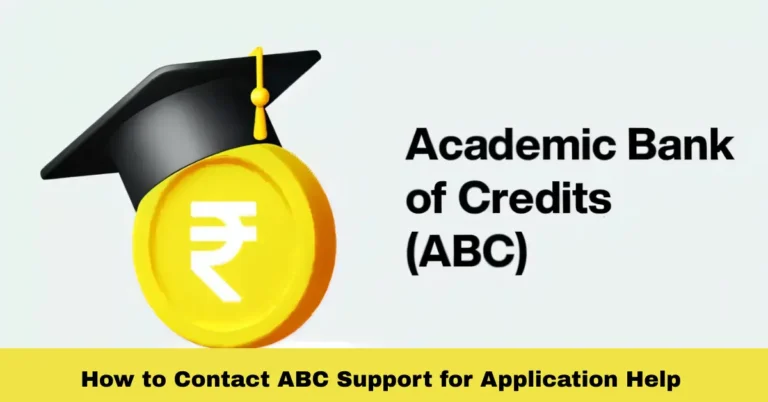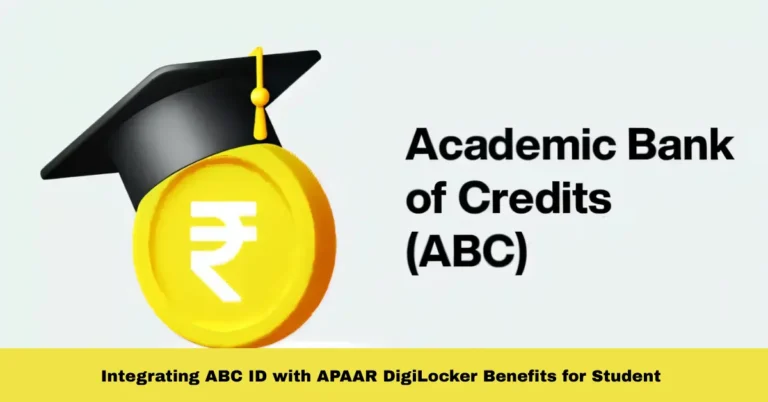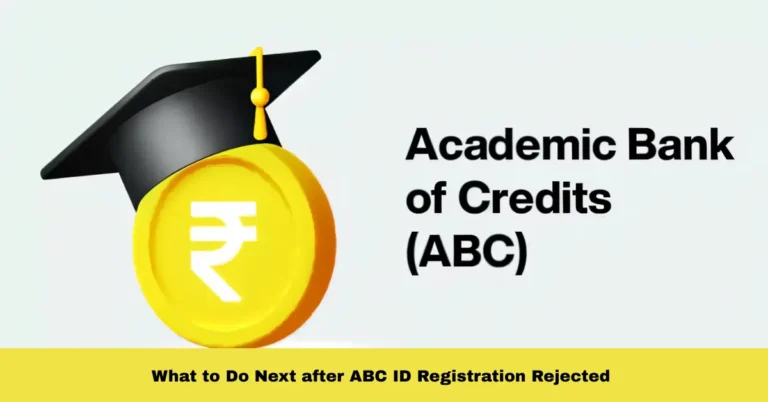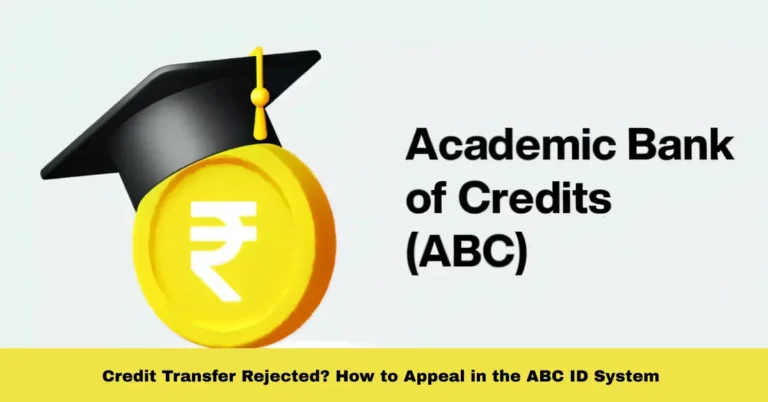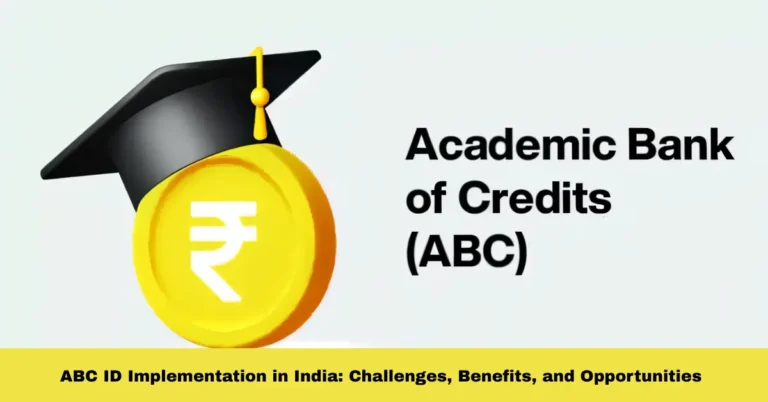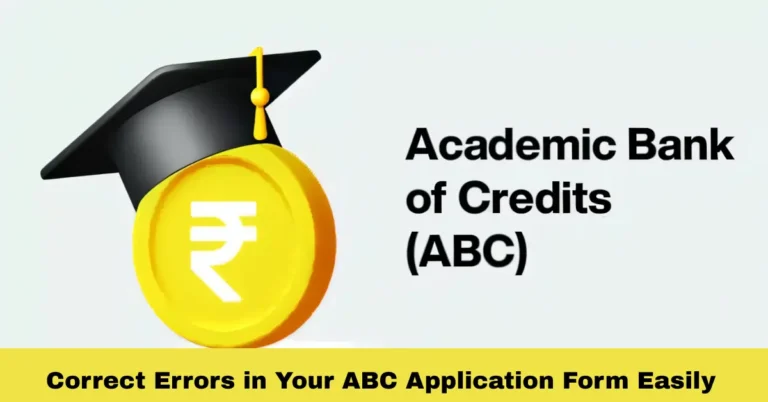Digital Divide in ABC ID : Rural Students & Credit Access
The Digital Divide and the ABC ID present significant challenges for rural students, where accessing educational opportunities is often hindered by poor internet connectivity. The Academic Bank of Credits ID (ABC ID) offers a digital solution for storing and transferring academic records, but slow or no internet access in rural areas makes this tool difficult to use.
While the ABC ID promises greater convenience and accessibility, the digital divide keeps it out of reach for many students. This gap limits their ability to fully leverage the system and impacts their academic mobility.
What Is the ABC ID?
The ABC ID, also known as the APAAR ID (Automated Permanent Academic Account Registry), is a unique 12-digit identifier introduced under India’s National Education Policy 2020.
Think of it as a digital academic wallet. Every course you complete, every credit you earn, every certificate you get—it all gets stored securely under this ID. You can access it anytime to transfer credits, apply for higher education, or share verified credentials with employers.
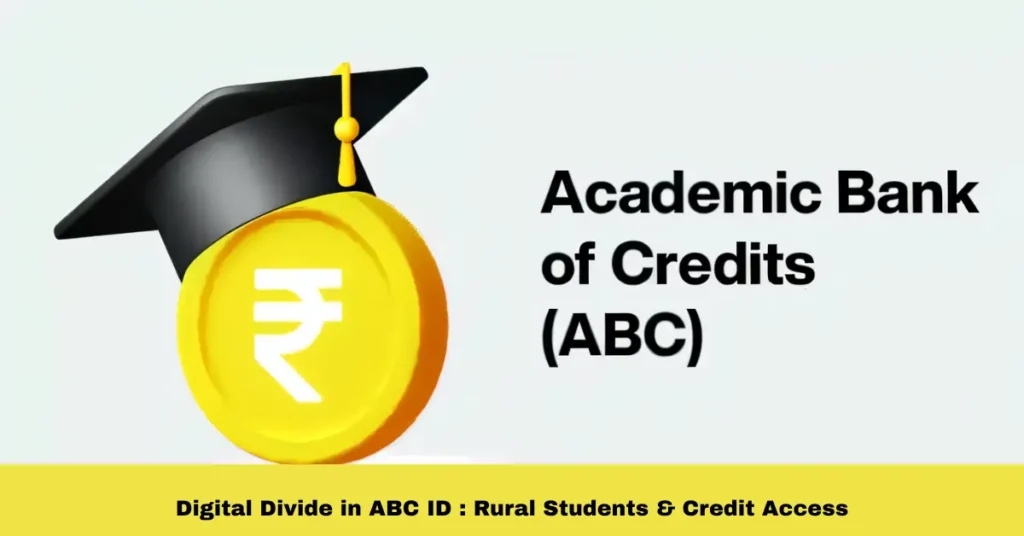
How the Digital Divide Hurts Rural Students
Many rural areas still lack reliable broadband. Without a stable connection, ABC portal access becomes inconsistent.
Families may not afford devices or data packs, making online access harder.
Remote learning exposed massive gaps in rural connectivity, a problem that continues today.be fully aware of the ABC system’s processes and requirements, resulting in delayed or incorrect data submissions.
Reaching a digital access point often requires long commutes and extra expenses.
Without timely ABC access, students can lose chances for credit transfers, admissions, or jobs.
Real-World Solutions That Help
Self-Learning Centers & CSCs – Local hubs with internet and trained facilitators.
Offline-Friendly EdTech – Apps that sync when the internet is available.
Community Wi-Fi Towers – Shared local access points.
Government Programs – BharatNet, PM-WANI, and state-led rural broadband projects.
Why Digital Divide Skills Matter as Much as Internet Access
Even when rural students manage to get online, they may lack the digital literacy to navigate the ABC portal effectively. Creating & managing your ABC ID for credit transfers requires understanding how to log in, upload documents, and troubleshoot errors—which is just as crucial as having a good internet connection
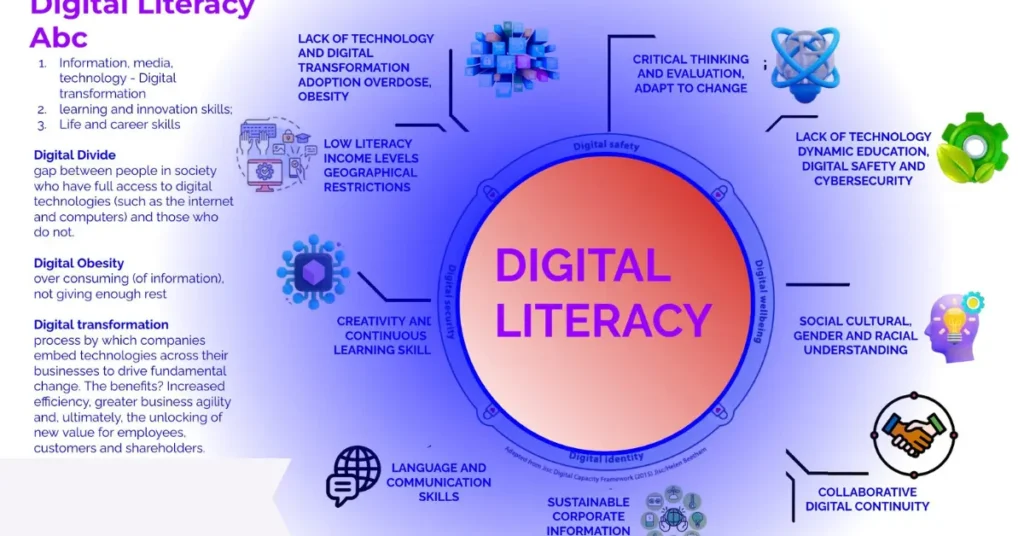
Challenges Unique to Remote and Tribal Areas
Some villages face seasonal disruptions—monsoons or power outages—that make digital access unpredictable. In tribal belts, the problem is compounded by language barriers and fewer local support centers.
Steps Students Can Take to Overcome ABC Access Issues
Quick Actions:
Role of Schools and Colleges in Bridging the Gap
Educational institutions can help by:
What is the Academic Bank of Credits (ABC)?
The only sustainable solution involves a three-way partnership:
Infrastructure investment and affordable data policies.
Low-cost devices and rural network expansion.
Training, awareness, and local digital champions who can guide others.
FAQs
Final Thoughts
The ABC ID has the potential to make education more accessible, but for rural students, it can also highlight deep inequalities in digital access.
The path forward isn’t just about faster internet—it’s about affordability, skills, and local infrastructure. When these come together, the ABC ID can truly level the playing field and give every student the same shot at success, no matter where they live.
